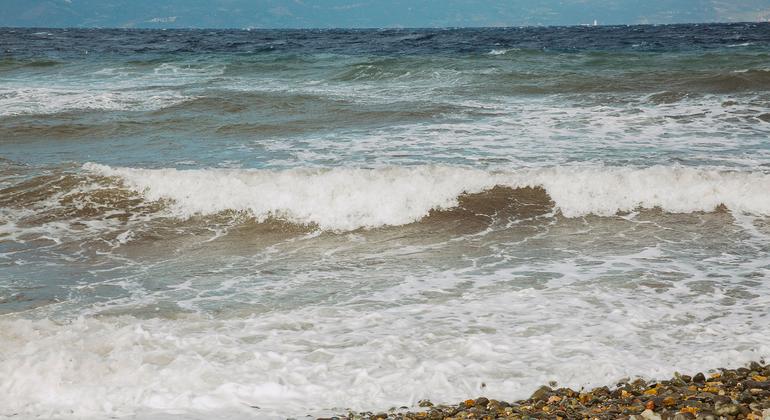According to the UN agency, between 21 and 24 December more than 160 people were rescued by Greece’s Hellenic Coast Guard – with support from the navy and air force, as well as merchant and private vessels.
Commending those efforts, Maria-Clara Martin, UNHCR’s representative in Greece, said “it is heart-rending that, out of despair and in the absence of safe pathways, refugees and migrants feel compelled to entrust their lives to ruthless smuggler”.
The proliferation of new crises in 2021, and the lack of solutions to resolve lingering ones, has tested our ability to respond like never before. Conflicts drove a devastating rise in the number of people forced to flee.#YearInReview in pictures 📸👇https://t.co/wBp48BOba3
— UNHCR, the UN Refugee Agency (@Refugees) December 28, 2021
“More resolute action is needed to curb people smuggling and stop those who exploit human misery and despair. It is disheartening to see preventable tragedies like these repeating themselves. We should not get used to seeing bodies being recovered from the sea”, she added.
Series of accidents
The first shipwreck took place off Folegandros island on 21 December, with 13 people rescued and three male bodies recovered.
One survivor told the Hellenic Coast Guard that as many as 50 people may have been onboard the boat that carried them without any safety equipment.
The second shipwreck, north of Antikythera island, resulted in the loss of 11 lives, while 88 people were rescued.
And on Christmas Eve, a boat carrying at least 80 passengers capsized off the island of Paros, claiming the lives of 17 people, including a baby.
Sixty-three survivors were rescued and brought to Paros, where local authorities and island residents rushed to assist them with blankets, food and clothes.
UNHCR estimates that from January until the end of November this year, more than 2,500 people have died or gone missing at sea in their attempt to reach Europe, through the Mediterranean and the northwestern African maritime route.
